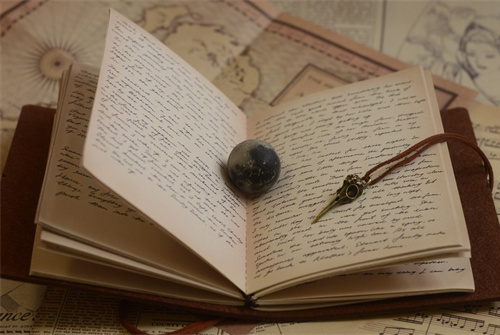诺贝尔和平奖获得者的事迹
2004年度诺贝尔和平奖获得者马塔伊的主要事迹 64岁的肯尼亚环境保护人士她所发起的“绿色带运动”在非洲各地载下了3千万颗树。
出生于1940年1971年成为内罗毕大学的首位生物学女教授,后来成为生物学院的院长。
这位著名的生物学学者1978年获得了德国学术交流奖学金,是获得这一奖学金的首位东非国家的女性。
她后来获得了生物学博士学位。
诺贝尔获奖者的获奖感言
Wangari Muta Maathai:Your MajestiesYour Royal HighnessesHonourable Members of the Norwegian Nobel CommitteeExcellenciesLadies and GentlemenI stand before you and the world humbled by this recognition and uplifted by the honour of being the 2004 Nobel Peace Laureate. As the first African woman to receive this prize, I accept it on behalf of the people of Kenya and Africa, and indeed the world. I am especially mindful of women and the girl child. I hope it will encourage them to raise their voices and take more space for leadership. I know the honour also gives a deep sense of pride to our men, both old and young. As a mother, I appreciate the inspiration this brings to the youth and urge them to use it to pursue their dreams. Although this prize comes to me, it acknowledges the work of countless individuals and groups across the globe. They work quietly and often without recognition to protect the environment, promote democracy, defend human rights and ensure equality between women and men. By so doing, they plant seeds of peace. I know they, too, are proud today. To all who feel represented by this prize I say use it to advance your mission and meet the high expectations the world will place on us. This honour is also for my family, friends, partners and supporters throughout the world. All of them helped shape the vision and sustain our work, which was often accomplished under hostile conditions. I am also grateful to the people of Kenya-who remained stubbornly hopeful that democracy could be realized and their environment managed sustainably. Because of this support, I am here today to accept this great honour. I am immensely privileged to join my fellow African Peace laureates, Presidents Nelson Mandela and F.W. de Klerk, Archbishop Desmond Tutu, the late Chief Albert Luthuli, the late Anwar el-Sadat and the UN Secretary General, Kofi Annan. I know that African people everywhere are encouraged by this news. My fellow Africans, as we embrace this recognition, let us use it to intensify our commitment to our people, to reduce conflicts and poverty and thereby improve their quality of life. Let us embrace democratic governance, protect human rights and protect our environment. I am confident that we shall rise to the occasion. I have always believed that solutions to most of our problems must come from us. In this year"s prize, the Norwegian Nobel Committee has placed the critical issue of environment and its linkage to democracy and peace before the world. For their visionary action, I am profoundly grateful. Recognizing that sustainable development, democracy and peace are indivisible is an idea whose time has come. Our work over the past 30 years has always appreciated and engaged these linkages. My inspiration partly comes from my childhood experiences and observations of Nature in rural Kenya. It has been influenced and nurtured by the formal education I was privileged to receive in Kenya, the United States and Germany. As I was growing up, I witnessed forests being cleared and replaced by commercial plantations, which destroyed local biodiversity and the capacity of the forests to conserve water. Excellencies, ladies and gentlemen, In 1977, when we started the Green Belt Movement, I was partly responding to needs identified by rural women, namely lack of firewood, clean drinking water, balanced diets, shelter and income. Throughout Africa, women are the primary caretakers, holding significant responsibility for tilling the land and feeding their families. As a result, they are often the first to become aware of environmental damage as resources become scarce and incapable of sustaining their families. The women we worked with recounted that unlike in the past, they were unable to meet their basic needs. This was due to the degradation of their immediate environment as well as the introduction of commercial farming, which replaced the growing of household food crops. But international trade controlled the price of the exports from these small-scale farmers and a reasonable and just income could not be guaranteed. I came to understand that when the environment is destroyed, plundered or mismanaged, we undermine our quality of life and that of future generations. Tree planting became a natural choice to address some of the initial basic needs identified by women. Also, tree planting is simple, attainable and guarantees quick, successful results within a reasonable amount time. This sustains interest and commitment. So, together, we have planted over 30 million trees that provide fuel, food, shelter, and income to support their children"s education and household needs. The activity also creates employment and improves soils and watersheds. Through their involvement, women gain some degree of power over their lives, especially their social and economic position and relevance in the family. This work continues. Initially, the work was difficult because historically our people have been persuaded to believe that because they are poor, they lack not only capital, but also knowledge and skills to address their challenges. Instead they are conditioned to believe that solutions to their problems must come from "outside". Further, women did not realize that meeting their needs depended on their environment being healthy and well managed. They were also unaware that a degraded environment leads to a scramble for scarce resources and may culminate in poverty and even conflict. They were also unaware of the injustices of international economic arrangements. In order to assist communities to understand these linkages, we developed a citizen education program, during which people identify their problems, the causes and possible solutions. They then make connections between their own personal actions and the problems they witness in the environment and in society. They learn that our world is confronted with a litany of woes: corruption, violence against women and children, disruption and breakdown of families, and disintegration of cultures and communities. They also identify the abuse of drugs and chemical substances, especially among young people. There are also devastating diseases that are defying cures or occurring in epidemic proportions. Of particular concern are HIV\\\/AIDS, malaria and diseases associated with malnutrition. On the environment front, they are exposed to many human activities that are devastating to the environment and societies. These include widespread destruction of ecosystems, especially through deforestation, climatic instability, and contamination in the soils and waters that all contribute to excruciating poverty. In the process, the participants discover that they must be part of the solutions. They realize their hidden potential and are empowered to overcome inertia and take action. They come to recognize that they are the primary custodians and beneficiaries of the environment that sustains them. Entire communities also come to understand that while it is necessary to hold their governments accountable, it is equally important that in their own relationships with each other, they exemplify the leadership values they wish to see in their own leaders, namely justice, integrity and trust. Although initially the Green Belt Movement"s tree planting activities did not address issues of democracy and peace, it soon became clear that responsible governance of the environment was impossible without democratic space. Therefore, the tree became a symbol for the democratic struggle in Kenya. Citizens were mobilised to challenge widespread abuses of power, corruption and environmental mismanagement. In Nairobi"s Uhuru Park, at Freedom Corner, and in many parts of the country, trees of peace were planted to demand the release of prisoners of conscience and a peaceful transition to democracy. Through the Green Belt Movement, thousands of ordinary citizens were mobilized and empowered to take action and effect change. They learned to overcome fear and a sense of helplessness and moved to defend democratic rights. In time, the tree also became a symbol for peace and conflict resolution, especially during ethnic conflicts in Kenya when the Green Belt Movement used peace trees to reconcile disputing communities. During the ongoing re-writing of the Kenyan constitution, similar trees of peace were planted in many parts of the country to promote a culture of peace. Using trees as a symbol of peace is in keeping with a widespread African tradition. For example, the elders of the Kikuyu carried a staff from the thigi tree that, when placed between two disputing sides, caused them to stop fighting and seek reconciliation. Many communities in Africa have these traditions. Such practises are part of an extensive cultural heritage, which contributes both to the conservation of habitats and to cultures of peace. With the destruction of these cultures and the introduction of new values, local biodiversity is no longer valued or protected and as a result, it is quickly degraded and disappears. For this reason, The Green Belt Movement explores the concept of cultural biodiversity, especially with respect to indigenous seeds and medicinal plants. As we progressively understood the causes of environmental degradation, we saw the need for good governance. Indeed, the state of any county"s environment is a reflection of the kind of governance in place, and without good governance there can be no peace. Many countries, which have poor governance systems, are also likely to have conflicts and poor laws protecting the environment. In 2002, the courage, resilience, patience and commitment of members of the Green Belt Movement, other civil society organizations, and the Kenyan public culminated in the peaceful transition to a democratic government and laid the foundation for a more stable society. Excellencies, friends, ladies and gentlemen, It is 30 years since we started this work. Activities that devastate the environment and societies continue unabated. Today we are faced with a challenge that calls for a shift in our thinking, so that humanity stops threatening its life-support system. We are called to assist the Earth to heal her wounds and in the process heal our own - indeed, to embrace the whole creation in all its diversity, beauty and wonder. This will happen if we see the need to revive our sense of belonging to a larger family of life, with which we have shared our evolutionary process. In the course of history, there comes a time when humanity is called to shift to a new level of consciousness, to reach a higher moral ground. A time when we have to shed our fear and give hope to each other. That time is now. The Norwegian Nobel Committee has challenged the world to broaden the understanding of peace: there can be no peace without equitable development; and there can be no development without sustainable management of the environment in a democratic and peaceful space. This shift is an idea whose time has come. I call on leaders, especially from Africa, to expand democratic space and build fair and just societies that allow the creativity and energy of their citizens to flourish. Those of us who have been privileged to receive education, skills, and experiences and even power must be role models for the next generation of leadership. In this regard, I would also like to appeal for the freedom of my fellow laureate Aung San Suu Kyi so that she can continue her work for peace and democracy for the people of Burma and the world at large. Culture plays a central role in the political, economic and social life of communities. Indeed, culture may be the missing link in the development of Africa. Culture is dynamic and evolves over time, consciously discarding retrogressive traditions, like female genital mutilation (FGM), and embracing aspects that are good and useful. Africans, especially, should re-discover positive aspects of their culture. In accepting them, they would give themselves a sense of belonging, identity and self-confidence. Ladies and Gentlemen, There is also need to galvanize civil society and grassroots movements to catalyse change. I call upon governments to recognize the role of these social movements in building a critical mass of responsible citizens, who help maintain checks and balances in society. On their part, civil society should embrace not only their rights but also their responsibilities. Further, industry and global institutions must appreciate that ensuring economic justice, equity and ecological integrity are of greater value than profits at any cost. The extreme global inequities and prevailing consumption patterns continue at the expense of the environment and peaceful co-existence. The choice is ours. I would like to call on young people to commit themselves to activities that contribute toward achieving their long-term dreams. They have the energy and creativity to shape a sustainable future. To the young people I say, you are a gift to your communities and indeed the world. You are our hope and our future. The holistic approach to development, as exemplified by the Green Belt Movement, could be embraced and replicated in more parts of Africa and beyond. It is for this reason that I have established the Wangari Maathai Foundation to ensure the continuation and expansion of these activities. Although a lot has been achieved, much remains to be done. Excellencies, ladies and gentlemen, As I conclude I reflect on my childhood experience when I would visit a stream next to our home to fetch water for my mother. I would drink water straight from the stream. Playing among the arrowroot leaves I tried in vain to pick up the strands of frogs" eggs, believing they were beads. But every time I put my little fingers under them they would break. Later, I saw thousands of tadpoles: black, energetic and wriggling through the clear water against the background of the brown earth. This is the world I inherited from my parents. Today, over 50 years later, the stream has dried up, women walk long distances for water, which is not always clean, and children will never know what they have lost. The challenge is to restore the home of the tadpoles and give back to our children a world of beauty and wonder. Thank you very much.
07年诺贝尔和平奖的得奖者是谁
我其实不是一个人站在这领奖台上。
小时候我和小伙伴喜欢在户外玩耍,但是每当夜幕降临,疲惫的村妇们一起坐在农舍边的长凳上开始讲故事时,她们的声音就会像磁石一样吸引我们。
这些妇女没有一个人有丈夫、父亲或者兄弟。
二战之后,我几乎看不到村子里有男人出没。
战争期间,四分之一的白俄罗斯人丧生,有些死于前线抗击敌人,有些死于后方和敌对游击队的战斗。
我从童年时代就已经明白了爱的真正内涵。
每当我走在街上,记录下听到的各种词汇、短语和感叹时,我都会在想:有多少小说都没有痕迹地消失了啊
人们还不能直接把他们生活中的对话记录下来作为文学作品,因为人们不懂得去欣赏这些对话,也不会因为读它们而感到惊讶或者快乐。
我喜欢人类交谈的方式,我喜欢寂寞的人声。
为什么关于战争
因为我们是战争中的人——我们一直在战争或者准备战争。
在家里,在街上。
这也是为什么这个国家的人命如此廉价。
一切都是战争。
在一次旅行中,我遇到了一个女人,她在二战期间是一名医疗兵。
她告诉我一个故事:冬天她们穿过拉多加湖时,敌人注意到了风吹草动,开始朝她们射击。
人和马都摔在了冰上,这一切都发生在夜里。
她抓住一个受伤的人,开始把他拖向岸边。
‘我拉着他,他全身赤裸湿透,衣服都被撕烂了。
’她对我说。
到岸后,她发现自己拽的是一条巨大的受伤的鲟鱼,这个女人想到:人类在受苦受难,但是动物、鸟和鱼,它们做了什么
在另一次旅行中,我听到了另一个医疗兵的故事。
在一次战斗中,她把一名受伤的士兵拉到弹坑,突然发现这是一名德国兵。
他的腿断了,不停流血。
他是敌人
怎么办
自己这边的人全死了。
但是,她还是帮德国兵包扎好,随后又跑出来,拖着一名失去意识的苏联兵来到弹坑。
苏联兵见到德国兵时,双方都拔枪想杀了对方。
我给了苏联兵一耳光,又扇了德国兵一耳光。
我们的腿都浸没在血泊中。
彼此的血融在了一起。
女人的战争,而不是英雄的战争,不是一方英勇地杀死了另一方。
我记得女人们频繁地哀叹:一场战役后,你穿过田野,他们都躺在那里……都很年轻,很英俊。
他们躺在那里,看着天空。
你为他们感到难过和惋惜,战争双方的人。
战争无非就是杀戮。
这是女性记忆中的战争模样。
‘消失’是女人谈论最多的东西,战争可以很快将一切化为乌有,不管是人命还是时间。
男人们十七八岁就志愿上前线,但并不意味着他们想杀人。
但是,他们准备随时赴死。
为了祖国而死。
为了斯大林而死。
这些是无法从历史中抹去的词。
俄罗斯文学的有趣之处在于,它讲述了在一个大国实施一场实验的故事。
我经常被问到:你为什么总是写悲剧
因为这就是我们的生活。
现在我们住在不同的国家,但是‘红’人无处不在。
他们来自同一个国家,曾拥有相同的生活,有着相同的记忆。
在我的祖国,孩子们从小就了解死亡。
我们被教育了死亡的含义。
我们被告知人类的存在就是为了奉献一切,牺牲自我。
我们被教会如何用武器去对待别人。
邪恶是冷酷无情的,你必须要对此打个预防针。
”阿列克谢耶维奇说,他们是在行刑人和受害者之间成长起来的,他们的生活环境是被玷污的,“我已经写了五本书,但我感觉到它们都是同一本,都在讲述乌托邦的历史。
过去有段时间,整个20世纪没有一个政治理念可以和共产主义(以十月革命为象征)相提并论,共产主义比任何其他事情都更强烈且富有感染力地吸引着西方知识分子。
但是实际上,共产主义理想已经至少2000多岁了。
我们可以在柏拉图的理想国里找到它的渊源;在阿里斯多芬尼斯有关‘万物共享’的梦里看到它的影子;历史上还有托马斯·莫尔和托马索·坎帕内拉,圣西蒙,傅里叶和罗伯特·欧文这些人。
俄罗斯人的骨子里有一种精神推动着他们去试图把这些梦想变成现实。
我那位至死都相信共产主义的父亲把党员卡留到了最后。
我的父亲、我的朋友以及我身边的许多人,他们都来自同一个地方——社会主义,他们之中有许多理想主义者、浪漫主义者。
但在今天,他们会被称为‘被绑架的浪漫主义者’,或者‘乌托邦的奴隶’。
我相信他们所有人本都可以过上不一样的生活,但他们还是选择了苏联式生活。
为什么会这样
为了找到答案,我花了很长一段时间。
我行走于这个曾被称为苏联的幅员辽阔的土地,并留下了成千上万的磁带。
我一点点地回顾社会主义的历史,回顾社会主义对人类的影响。
我发现人类其实是很小的概念,尤其具体到我们每一个人。
但在现实中,人类让一切发生皆有可能。
白俄罗斯的土地,那里是我父亲的家乡,那儿有我的整个人生;乌克兰,我母亲的家乡、我出生的地方;以及俄罗斯的伟大文化,没有它我不能想象自己。
我很爱这三个家。
但是在这个时代,我们很难谈爱。
上一篇:诺基亚6使用体验感言
下一篇:返回列表





